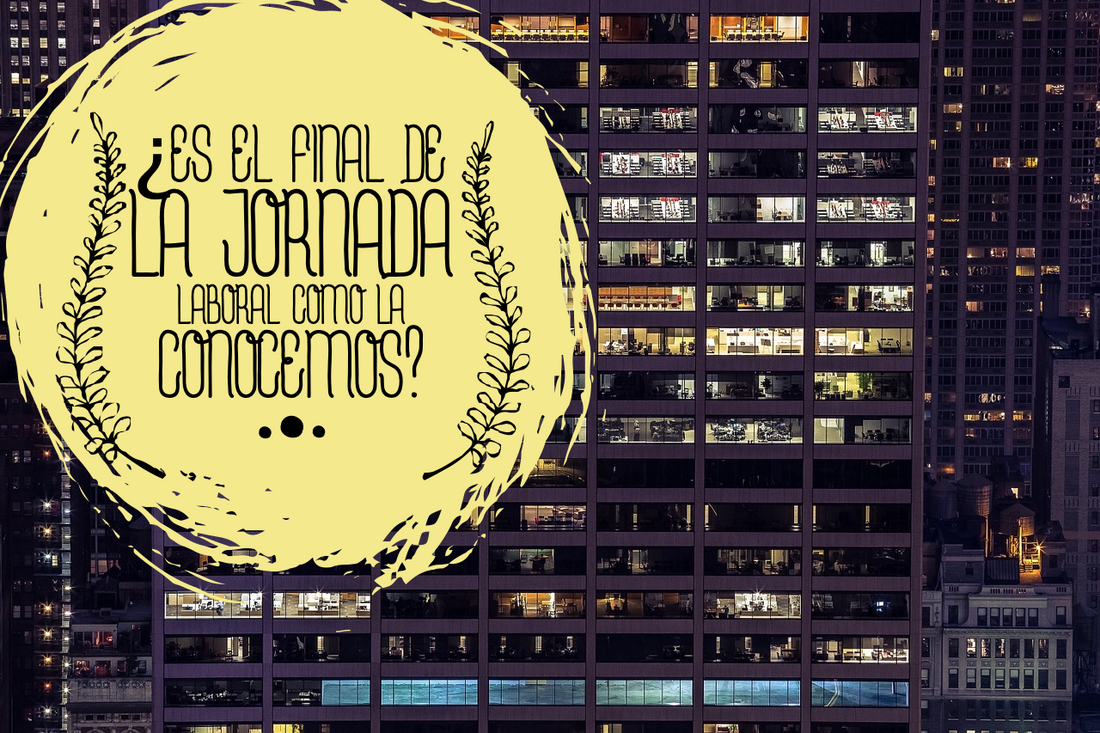
The 8-hour work day is out of business
Share

Image by Free-photos/Pixabay
According to Dr. Travis Bradberry, co-author of EMOTIONAL INTELLIGENCE 2.0 and President of TalentSmart, the 8-hour workday is an outdated and ineffective way to focus your work time and it's important that you find a new way to approach it.
The 8-hour work day was introduced during the Industrial Revolution in order to reduce the number of hours that workers were forced to work in factories. This innovation, for those times, seemed fairer considering the work that these people were subjected to, but that was two hundred years ago and today it has lost its relevance.
Like our ancestors, we are expected to put in 8-hour days comprised of two long work blocks, morning and afternoon, with 2 short breaks and an hour for lunch. But there are people who even work through their lunch hour. The bottom line is that this approach has not helped much and has in fact been found to put us behind at work.
Desktime ( 1 ) has created a program that tracks employees' work habits and conducted a study and this is what came out:
A person cannot be 100% productive all day long. No matter how much you want to make the most of every minute, it is humanly impossible.
Explanation : Mental concentration is like a muscle, it needs rest to function and should not be overtrained, as it burns out and needs much more time to recover.
In modern companies, there is a growing controversy regarding workplace productivity. Many employers associate the physical presence of employees with productivity; but the new school of thought focuses on work done and not on-site hours as promoted by Jason Fried of Basecamp .
Regardless of what employers consider “productive,” Desktime has been able to pinpoint the flow that produces the most productive work—innovative efficiency, they call it.
Conclusions:
The most productive people work 52 and rest 17 minutes.
In fact, most of the most productive employees don't even work 8-hour days.
Explanation : The secret to maintaining the highest level of productivity is not to work more hours, but to take frequent breaks. Why?
- Knowing that a break is coming makes you concentrate, stay focused, and work with purpose.
- Working for longer periods of time causes cognitive boredom. The human body is not made to sit for 8 hours a day. It's that simple.
- According to Desktime, it is important to do something, some activity during the chosen intervals as this definitely improves your health and concentration.
Scientific arguments supporting frequent breaks:
Mind : Working for long periods of time is detrimental to your level of commitment to a job or company in general. Repeating jobs leads to cognitive boredom, which in turn slows down your ability to make good progress in your work.
Attention span : The human brain is not physiologically capable of concentrating continuously for 8 hours. The best way to refresh and recharge your attention span is to take a short break, let your mind wander wherever it may be, and then get back to work with full dedication.
The body : The human body is not designed to sit all day. Some suggest getting the “standing desks” that have been all the rage for a couple of years now, but it has now been proven that what the body needs is action. So put on your sneakers and let’s go for a walk around the block! And hopefully we work on an upper floor so we can go up and down the stairs.
Frequent breaks should be part of every office worker's survival kit. These breaks help improve your vision, reduce back pain, arthritis, stress levels, and even heart disease.
What to do during the break?
Exercise : There are a number of small workouts that can be done in the confines of the office. I'm sure most offices don't have these break spaces for their workers yet, but there are apps that offer some pretty clever workouts. They're worth a try. ( 1 )

Walking : Rather than staying inside your workplace, going out for a short walk is better. Not only does it clear your mind, but it also gives you oxygen, sun and rejuvenates you. The vitamin D you get from the sun's rays will put you in a good mood and will also boost your ability to concentrate.

img. Pixabay
Go buy something healthy to eat : The best food alternatives to promote your mental capacity are nuts, avocados and blueberries, not forgetting dark chocolate.

Photo by Steve-Cliff
Talk to your colleagues : Research has shown that employees who socialize are more happy at work and get the same amount of work done as those who don't socialize.

Photo William Iven
Check your social media : This is your time to rest and you can do it. But also, take a moment to not focus on a computer monitor or your cell phone and rest your near vision focus by looking at the horizon.

Watch funny videos of dogs and cats : It is proven that looking at cute images of dogs and cats makes you more productive.

Coxinha photos/Pixabay
Exercise your eyes . Your eyes carry the burden of our technology-filled lives. Most of us spend 6-9 hours a day on a digital device, with 28% of that time spent staring at one screen or another. Your eyes start to feel the strain after TWO HOURS of focusing, so taking a visual break is highly recommended.
Fortunately, there is a very simple exercise that can help reduce eye fatigue: it's called 20-6-20. Every 20 minutes, look away from the computer and focus on an object about 20 feet away for about 20 seconds.
In addition to taking care of your eyes during work breaks, there are other measures that help you protect your eyes during your daily workday:
- Keep the lights low so that the computer light is the brightest thing in the room.
- Reduce glare: When one area of the computer screen is brighter than the others, it is difficult for your eyes to adjust to the different brightness and this causes more eye strain. There are anti-glare screens that help greatly to reduce this effect on your eyes; clean the screen regularly and make sure you do not work too close to a window.
- Make your workspace comfortable for your eyes. Most of us overlook this important working organ. We either look too low at the screen or crane our necks too far to meet it. Proper ergonomics is crucial to reducing fatigue throughout the body, but especially the eyes.
It's time to structure your day
The 8-hour day can work for you if you break your day into segments with strategic intervals. Once you get your natural energy aligned with your effort level, things start to flow. Here are some tips to help you get into the swing of things:
Break your day into one-hour blocks . We typically plan out what we need to accomplish before the end of the day, week, or month, but we are much more effective when we focus on what we can accomplish “right now.” Beyond creating a rhythm, planning your day in hourly chunks simplifies overwhelming tasks and breaks them down into manageable chunks. If you want to be radical, you can stick to 52 minutes, but 60 minutes of focus works just fine, too.
Respect your time . The interval strategy only works because we use our energy peaks to achieve an extremely high level of concentration for a relatively short time. If you break your time by checking emails, texting or checking Facebook, you are defeating the whole point of this approach. Respect your work hour and your 17-minute break.
Take a real break . In the Desktime study, employees who took more frequent breaks were found to be more productive than those who didn't take any breaks at all. Likewise, those who deliberately took relaxing breaks were more productive than those who had a hard time getting away from their desk or computer when they "broke." Getting away from your computer, phone, and to-do list is essential to boosting your productivity . Breaks like walking, reading, and talking are the most effective ways to recharge.
Don't wait until your body tells you to rest. If you wait until you feel exhausted to rest, it's too late. This means you've already passed your ideal productive time. Sticking to your schedule ensures that you're working when your mind is most productive and resting when it's least productive. Remember: it's much more productive to rest for short periods than to keep working, even when you're exhausted or distracted.
Try using this strategy, compare the effectiveness of your work breaks with the strategy you have practiced so far, and let me know how it goes. Every person is different and a different strategy may work for you. I'm interested in your feedback.
